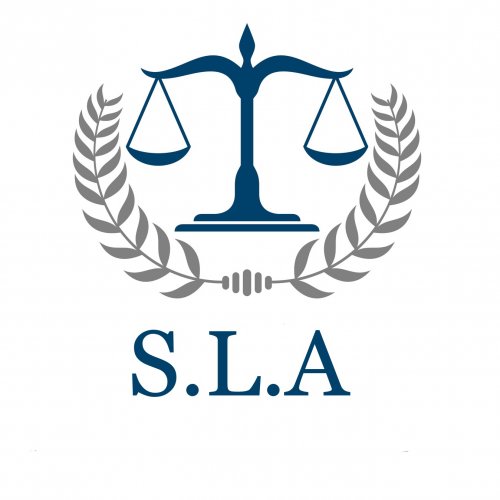Best Father's Rights Lawyers in Pakistan
Share your needs with us, get contacted by law firms.
Free. Takes 2 min.
Free Guide to Hiring a Family Lawyer
Or refine your search by selecting a city:
List of the best lawyers in Pakistan
About Father's Rights Law in Pakistan
Father's rights in Pakistan are primarily governed by religious, statutory, and personal laws, depending on the individual’s faith. While Pakistan operates under a common law legal system, issues pertaining to family matters, including custody and visitation rights, can be complex due to the various socio-religious influences. Islamic law, for example, plays a significant role in determining parental rights for Muslims, who form the majority in Pakistan. Generally, the father's role in guardianship, financial support, and upbringing of children is recognized, but mothers often receive custody of young children. Recent shifts have seen an increased focus on balanced parental rights, emphasizing the welfare of the child above all.
Why You May Need a Lawyer
Navigating Father's Rights can be challenging due to the complex interplay of legal and religious principles. Common situations requiring legal assistance include:
- Disputes over custody and visitation rights after a divorce or separation.
- Securing legal recognition of paternity, especially in the context of inheritance or identity rights.
- Enforcement of court orders regarding a father's access to their children.
- Amending existing custody arrangements due to changes in circumstances.
- Defending against accusations in family courts that may affect custody rights.
Engaging an attorney specialized in family law ensures that fathers understand their rights and responsibilities, and receive guidance through the legal process.
Local Laws Overview
In Pakistan, father's rights are impacted by several legal frameworks:
- Muslim Family Laws Ordinance 1961: Governs family relations for Muslims, providing a basis for custody and maintenance issues. Fathers are generally considered guardians, but mothers are awarded custody for young children, with the father retaining financial obligations.
- Guardian and Wards Act 1890: Provides the legal framework for appointing guardians and adjudicating custody disputes. The court's primary consideration is the child’s welfare, with custody often granted to the mother, especially for minors under a specific age.
- Case Law and Precedents: Judicial decisions contribute significantly to shaping the nuances of father's rights, particularly in interpreting the best interest of the child standard.
Frequently Asked Questions
1. Can a father in Pakistan gain custody of his children?
Yes, fathers can gain custody, especially as children grow older. The court prioritizes the child's best interests, assessing factors like financial stability and the child's wishes.
2. What age can a child choose which parent to live with?
While there's no legal age, courts often consider the child's preference if they are mature enough to form an opinion, typically around the age of 12 or older.
3. How are visitation rights determined?
Visitation rights are determined by the courts, emphasizing the child's welfare, ensuring they maintain a relationship with both parents.
4. Can a father prevent relocation of children by the mother?
Fathers can seek legal recourse to prevent the relocation that may affect his visitation rights, asking for court intervention to protect his relationship with the child.
5. What is the father's obligation for child support?
Fathers are expected to provide for the children financially, irrespective of custody arrangements, as dictated by Islamic principles and statutory laws.
6. Can a father request a change in the visitation schedule?
Yes, fathers can petition the court to modify visitation schedules if circumstances change, such as job relocations or changes in the child's needs.
7. Is DNA testing required for paternity disputes?
DNA testing can be used in court to establish paternity when required, providing conclusive evidence regarding biological parentage.
8. Are there legal consequences for denying a father access to his children?
Yes, such actions can lead to legal penalties, including fines or modifications in custody arrangements to ensure compliance with court orders.
9. How long does the custody process take?
The duration varies depending on the case's complexity, ranging from several months to a year or more, subject to court schedules and dispute nature.
10. Can fathers legally adopt a child in Pakistan?
Adoption is not officially recognized in Pakistan due to religious restrictions; however, guardianship is an alternative for assuming parental responsibilities.
Additional Resources
For more help on Father's Rights, explore the following resources:
- Local Family Courts: Engage with the family courts for legal proceedings related to custody and visitation disputes.
- Pakistan Bar Council: Offers a directory of licensed lawyers specializing in family law issues.
- Non-Governmental Organizations (NGOs): Organizations like Lawyers for Human Rights and Legal Aid provide support and guidance for family-related legal issues.
Next Steps
If you require legal assistance in matters related to Father's Rights, consider the following steps:
- Consult with a lawyer specializing in family law to understand your rights and options.
- Gather relevant documentation, including marriage certificates, court orders, and communication records, to support your case.
- File a petition or application in the appropriate family court, if necessary, for custody, visitation, or related matters.
- Attend court proceedings, adhering to legal advisories, to advocate effectively for your parental rights.
Remember, early legal intervention can significantly impact the resolution of your case and help realign outcomes in your favor.
Lawzana helps you find the best lawyers and law firms in Pakistan through a curated and pre-screened list of qualified legal professionals. Our platform offers rankings and detailed profiles of attorneys and law firms, allowing you to compare based on practice areas, including Father's Rights, experience, and client feedback.
Each profile includes a description of the firm's areas of practice, client reviews, team members and partners, year of establishment, spoken languages, office locations, contact information, social media presence, and any published articles or resources. Most firms on our platform speak English and are experienced in both local and international legal matters.
Get a quote from top-rated law firms in Pakistan — quickly, securely, and without unnecessary hassle.
Disclaimer:
The information provided on this page is for general informational purposes only and does not constitute legal advice. While we strive to ensure the accuracy and relevance of the content, legal information may change over time, and interpretations of the law can vary. You should always consult with a qualified legal professional for advice specific to your situation.
We disclaim all liability for actions taken or not taken based on the content of this page. If you believe any information is incorrect or outdated, please contact us, and we will review and update it where appropriate.
Browse father's rights law firms by city in Pakistan
Refine your search by selecting a city.

















